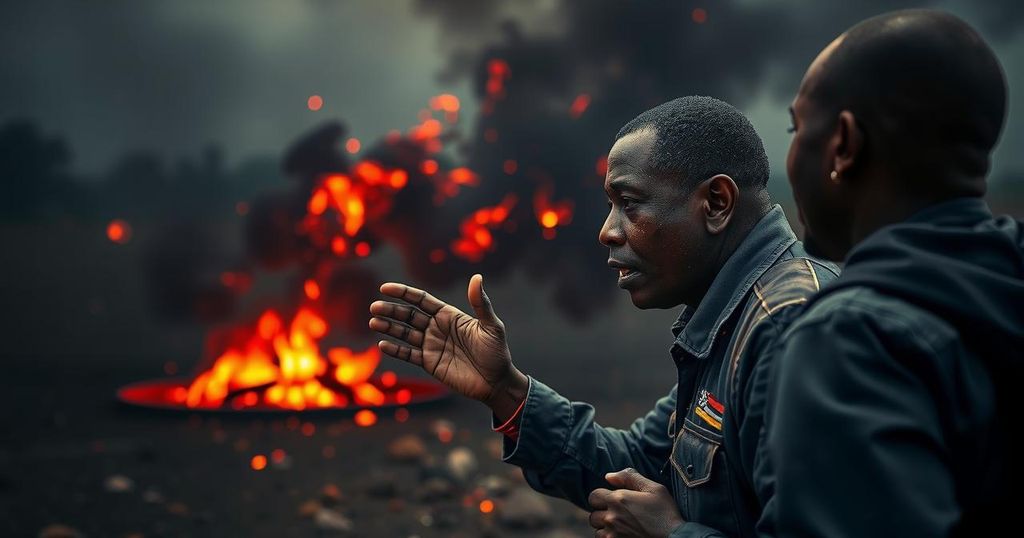Escalating Tensions in Mozambique After Assassination of Opposition Activists
Tensions in Mozambique have significantly heightened after the fatal shootings of prominent opposition figures, Elvino Dias and Paulo Guambe, following a disputed presidential election. The killings raise serious concerns about electoral integrity and stability in the country as opposition leader Venâncio Mondlane rallies supporters amid accusations of fraud favoring the ruling Frelimo party.
Tensions have escalated in Mozambique following the murders of two prominent supporters of the leading opposition candidate, Venâncio Mondlane, in the aftermath of a contentious presidential election. The victims, Elvino Dias, a lawyer, and Paulo Guambe, a senior official of the Podemos party, were targeted in an ambush while traveling in a vehicle in Maputo on Friday night. This violence underscores the rising instability in a nation already reeling from allegations of electoral fraud and irregularities that tainted the election held on October 9, where Mr. Mondlane gained significant popularity among voters disillusioned with the ruling party. As the main contender against Daniel Chapo of the Frelimo party, which has held power since Mozambique gained independence nearly half a century ago, Mr. Mondlane had expressed concerns about being cheated out of a fair election. Days prior to the ambush, he had called for protests among supporters and planned a strike timed with the announcement of election results, which, though not fully disclosed, currently show Mr. Chapo in a lead position. Observers from independent electoral missions reported substantial discrepancies during the voting process, favoring the incumbent party. The deaths of Mr. Dias and Mr. Guambe have further inflamed the situation, prompting urgent calls for accountability and a reassessment of the electoral process.
The violence in Mozambique arises against a backdrop of an election characterized by substantial electoral disputes and accusations of corruption. With the recent presidential polls marking a significant political moment, the mood in the country was already fractious, primarily due to the ruling Frelimo party’s hold on power since Mozambique’s independence in 1975. The rising star of the opposition candidate Venâncio Mondlane, alongside a burgeoning dissatisfaction among younger voters, highlighted a crucial moment for political change. However, following the election, concerns over fairness and safety have overshadowed the political landscape, culminating in the tragic shootings of key opposition figures, thereby escalating tensions in the capital.
In summary, Mozambique is facing increased turmoil following the assassination of two key political figures associated with opposition leader Venâncio Mondlane amid allegations of electoral fraud. The unrest illustrates a significant crisis in the nation’s political climate, as calls for justice and reform grow louder in response to this violence and the disputed election results. The situation remains precarious, with potential implications for the future of democracy in Mozambique.
Original Source: www.nytimes.com




Post Comment